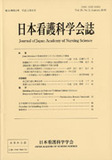Japanese
English
- 販売していません
- Abstract 文献概要
- 参考文献 Reference
- サイト内被引用 Cited by
要旨
本研究の目的は,院内教育における教育ニーズと学習ニーズの関係,及び学習ニーズの関連要因を明らかにすることである.Competency Model Methodを参考に,ニーズ調査の枠組みとして『看護の専門的能力』を設定,質問紙を作成した.これは9中位項目で構成され,4段階評定で数量化される.分析対象は,N系総合病院7施設の院内教育担当者48名と看護婦240名で,以下の結果を得た.
1.教育ニーズは学習ニーズに比べ,「教育・指導」「調整」「研究的態度」「意思決定」の中位項目(以下,中位項目は「」で記す)が有意に高く,「対象理解」「直接的ケア」は学習ニーズが高い傾向を示した.
2.学習ニーズには臨床経験年数と自己研鑽が関連していた.①臨床経験年数では「対象理解」「直接的ケア」「看護過程」「相談・支持」「意思決定」に有意差が見られ,4年目以上で低下傾向を示した.②自己研鑽では,「研究的態度」「教育・指導」に有意差が見られ,自己研鑽している者の学習ニーズが高値を示した.
3.教育の提供時期に関しては,教育側は3年目までに集中する傾向にあった.しかし,受け手側では学習ニーズの優先項目を分析した結果,4年目以上で学習の関心に広がりがみられた.
以上のことから,今後は学習ニーズの特性を踏まえた上での,長期的展望に立った教育の必要性が示唆された.
Abstract
Purpose: This study assessed the need for in-service education by comparing staff development educators' needs with staff nurses' learning needs. Educational/learning needs were identified by focusing on “The Professional Nursing Competencies”, based on the Competency Model Method.
Subjects&Methods: 48 educators and 240 staff nurses in 7 N-affiliated hospitals were the subjects of this analysis. A needs assessment questionnaire consisting of 9 categories was developed and used for data collection.
Results:
1. A review of the data indicated a gap in needs between educators and staff nurses. Educators' needs showed significantly higher scores than staff nurses' needs for Teaching, Management, Research-based Practice,and Decision-Making. By contrast, the staff nurses' needs yielded somewhat higher scores for both Understanding Clients and Clinical Skills.
2. The learning needs of staff nurses were influenced by years of nursing experience and self-directed learning.
①We discovered significant differences in Understanding Clients, Clinical Skills, Nursing Process, Counseling, and Decision-Making according to duration of nursing experience. Nurses who had worked for more than 4 years had lower scores than the others.
②Nurses who had continued self-directed learning had a significantly higher score for Research-based Practice and Teaching than the others.
3. Concerning the timing of continuing education, educators' needs tended to be concentrated within the first 3 years after graduation. However, analysis of the priority of learning needs showed that nurses tended to have wider interests in continuing education after 4 years experience.
Conclusion : These findings suggest that education for professional nurses should be on a continuing basis.
Copyright © 2000, Japan Academy of Nursing Science. All rights reserved.


